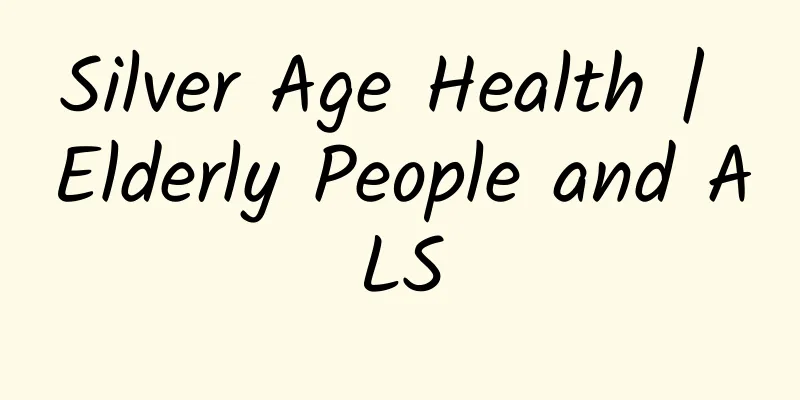Eating 1 to 6 eggs a week can help you live to 99? The truth is unexpected

|
Recently, a new study found that eating 1 to 6 eggs a week can help extend the life of the elderly and reduce the risk of death from cardiovascular disease. The media reported that the latest research overturned cognition and found that eating eggs can "protect the heart and prolong life." So, are eggs really so magical? Is this study reliable? How should we view such new research? Today, we will take this study as an example to talk about eggs and how to examine such research. Copyright images in the gallery. Reprinting and using them may lead to copyright disputes. What is the research about? The study was conducted by tracking 8,756 Australians aged 70 and above, with an average follow-up time of about 5.9 years. The researchers used questionnaires to understand the frequency of egg intake among these elderly people. During the follow-up period, a total of 1,034 participants died, including 229 deaths from cardiovascular disease and 453 deaths from cancer. Related research screenshots The results showed that compared with people who never ate or rarely ate eggs, people who ate 1 to 6 eggs per week had a 29% lower risk of death from cardiovascular disease and a 15% lower risk of death from all causes. However, for people who ate eggs every day, the study did not find a significant change in the risk of death. Further analysis found that for people with moderate and high dietary quality, 1 to 6 eggs per week were associated with a lower risk of death from cardiovascular disease, a 33% and 44% reduction, respectively. Therefore, many news reports say, "Eating 1 to 6 eggs a week can help prolong your life." Let me start with the conclusion: Eggs are indeed a very nutritious food with a very high cost-effectiveness, and are recommended for daily consumption. However, the relevant media reports this time are indeed exaggerated. While this research may seem "tantalizing," it has some notable limitations. First of all, this is an observational study that can only find an association between egg intake and the risk of death, and cannot prove a causal relationship. In other words, we cannot simply assume that eating eggs can reduce the risk of death, and there may be other factors at work. Copyright images in the gallery. Reprinting and using them may lead to copyright disputes. For example, ice cream sales increase significantly in the summer, and the number of drownings also increases significantly in the summer. Obviously, there is a correlation between ice cream sales and drownings, but there is no causal relationship between the two events. Second, the study's data relied heavily on self-reporting (self-memory) by participants, which can be biased. People often don't keep accurate records of their diets, and may overestimate or underestimate their egg intake. Think about it, can you immediately remember what you ate for lunch yesterday? If you don’t have the habit of recording and taking notes, it is difficult for most people to remember exactly what they ate and how much they ate. Additionally, the study did not take into account other dietary factors in detail, such as whether the participants also consumed large amounts of red meat, processed meat, or other unhealthy foods, which could have affected the results. Furthermore, the research samples were mainly elderly Australians, whose eating habits, lifestyles and health conditions may differ from those of people in other countries or regions, so the universality of the research results needs further verification. In general, we should not be overly optimistic about the results of this study. However, in terms of the nutrition of eggs, it is still recommended that you eat more eggs in moderation. Eggs are nutritious and affordable Recommended for everyone to eat every day Eggs are a common food, and one egg costs only a few cents. It is indeed a food with high nutritional value and high cost-effectiveness. The main component of eggs is protein. One egg contains about 7 grams of protein. Moreover, the amino acid pattern of the protein in eggs is very balanced, which is very suitable for human absorption and utilization. It is a good source of protein intake. The lecithin in eggs is an important component of high-density lipoprotein, which regulates blood lipids and also plays an important role in nervous tissue such as the brain. Copyright images in the gallery. Reprinting and using them may lead to copyright disputes. Eggs are rich in vitamins and can provide 10% to 20% of folic acid in the diet, and 20% to 30% of vitamins A, D, and E. For vegetarians, eggs are also an important source of vitamin B12. Eggs are also rich in choline. The choline content in 100 grams of eggs is about 251 mg. A shelled egg weighs about 50 grams and can provide 176 mg of choline. Choline is a very important nutrient for children. Studies have found that when both DHA and choline are adequately supplied, it is most beneficial to the development of the fetal brain and the cognitive level of the future baby is the highest; babies who get enough choline during pregnancy will have less stress response after birth, and the risk of various chronic diseases in the future may be reduced. Therefore, eggs are a food with high nutritional value and high cost-effectiveness, and are worth enjoying. How to eat eggs healthily? How to eat eggs more healthily? It is recommended that you pay attention to the following points: 1 One egg a day, don't throw away the yolk Half of the protein in eggs and more than 90% of various vitamins and trace elements are in the yolk. Therefore, eggs can be eaten, and the yolk should not be thrown away. For normal people, eating one egg a day will not increase the risk of cardiovascular disease. The "Dietary Guidelines for Chinese Residents (2022)" recommends eating 280g to 350g of eggs per week (about one egg per day), and not discarding the egg yolks. 2 Try to cook it thoroughly before eating Eggs may be contaminated by bacteria, such as salmonella, during production, transportation, and storage. Therefore, when buying and eating eggs, pay attention to hygiene. It is recommended to cook eggs thoroughly when eating them and avoid eating them raw or half-cooked. 3 Boiled eggs and steamed eggs are preferred How you eat eggs is also very important. Whether the eggs are fried or steamed, stir-fried with a lot of oil or poured with water, or served as egg custard or egg drop soup, they all have a very different impact on human health. Copyright images in the gallery. Reprinting and using them may lead to copyright disputes. Studies have found that when eggs are improperly cooked (such as fried), fat and cholesterol are oxidized and may generate advanced glycation end products (AGEs) through the Maillard reaction, which may promote damage to the human vascular endothelium and promote arteriosclerosis, which is not conducive to cardiovascular health. However, steamed eggs and boiled eggs do not have such problems. 4 Pay attention to the combination, the food is diverse and balanced Eggs are a nutritious food, but we should not rely too much on a single food. In daily life, maintaining a diverse and balanced diet is the key to maintaining health. When eating eggs, you should also pay attention to eating them with other foods, such as vegetables, whole wheat bread, lean meat, etc. Try to make the food diverse, so that you can provide more balanced nutrition. References [1]WildH,GasevicD,WoodsRL,RyanJ,WolfeR,ChenY,GovindarajuT,McNeilJJ,McCaffreyT,BeilinLJ,IlicD,OwenAJ.EggConsumptionandMortality:AProspectiv eCohortStudyofAustralianCommunity-DwellingOlderAdults.Nutrients.2025Jan17;17(2):323.doi:10.3390/nu17020323.PMID:39861452;PMCID:PMC11767731. ↑ [2] Liu Yali, Fan Zhihong. Study on the relationship between egg intake and risk of cardiovascular and cerebrovascular diseases[J]. Chinese Food and Nutrition, 2013, 19(11): 70-73. DOI: 10.3969/j.issn.1006-9577.2013.11.018. ↑ [3] “Dietary Guidelines for Chinese Residents (2022)” ↑ Planning and production Author: Ruan Guangfeng, Deputy Director of Kexin Food and Health Information Exchange Center Review丨Zhang Yu, researcher at the Chinese Center for Disease Control and Prevention, national health science expert |
<<: Health Science | Back-to-school Health Guide
>>: Scientific understanding, rational response to influenza and "white lung"
Recommend
Seven months pregnant woman feels like having period pain
Pregnancy is the top priority in every woman'...
Can uterine fibroids cause prolonged menstruation?
Uterine fibroids are a relatively common disease....
Causes of bleeding in early pregnancy
Many friends who are pregnant usually experience ...
Will uterine contractions cause frequent fetal movements?
Uterine contractions are a common phenomenon duri...
Will hcg levels increase in ectopic pregnancy?
It takes a lot of physical and mental effort for ...
How about exercise when my period comes?
Many people feel uncomfortable during their perio...
What should women eat during menstruation?
For women, it is very important to pay attention ...
What should I do if a girl snores?
We may see people snoring in daily life, mostly m...
【Medical Q&A】Why is a healthy diet so important for preventing chronic diseases?
Planner: Chinese Medical Association Reviewer: Ch...
What is the cause of coffee-colored vaginal discharge?
Gynecological diseases have always been the most ...
Can a 22-year-old girl get inflammation?
During the examination in a gynecological hospita...
What is black menstrual blood?
Many women do not pay much attention to menstruat...
Where is the clavicle of a woman?
It is said that women with collarbones are very b...
How is breast augmentation surgery performed?
In modern society, people pay more attention to t...
What kind of soup is good for women to replenish qi and blood
In fact, the Qi and blood in the female body are ...









